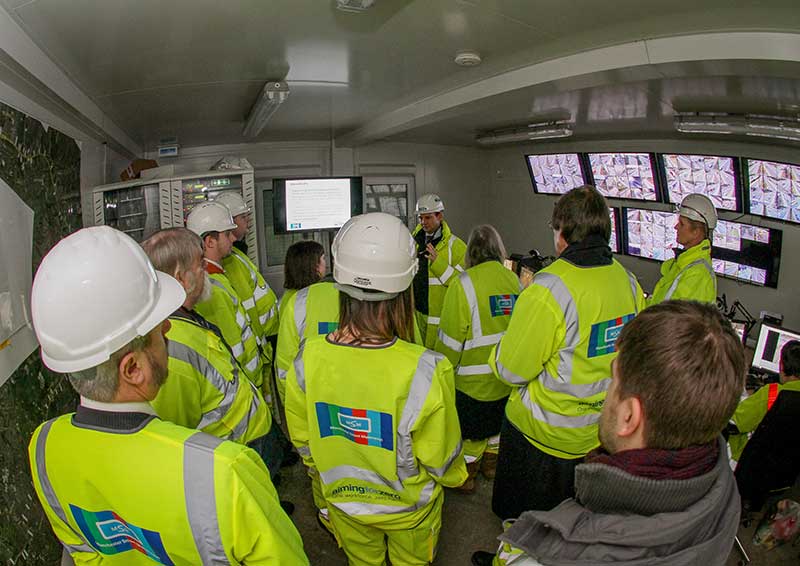What to expect of sustainability professionals
Contents |
[edit] Introduction
Do infrastructure professionals expect too much, or the wrong thing, from their sustainability colleagues?
Civil engineering and infrastructure are central to sustainability and vice versa. Without infrastructure to meet society’s development, there won’t be any sustainability, whether we’re talking about social, economic or environmental sustainability.
But the infrastructure sector often expects too much, or the wrong thing, from their sustainability colleagues.
Infrastructure professionals all seem to expect that their sustainability colleagues will provide ‘the’ answer to the sustainability issues for each and every project.
In addition, sustainability professionals often act in a way that supports this expectation. This misunderstanding of sustainability is not delivering the innovative solutions we need.
[edit] Great and usually unrealistic expectations
It starts at conferences with sustainability professionals giving presentations that show how they can provide all the answers for everything.
“Here’s our wonderful project in which we started with problems X, Y, and Z, and the sustainability team/professional proposed solutions M, N, and O which all worked perfectly.” Hidden message: sustainability is a great way to solve lots of infrastructure or engineering challenges. This sounds great, doesn’t it?
Unfortunately, no. The unintended consequence of this message is the expectation that ‘the’ (single, best fit) sustainability solution already exists and that it can easily be found just by asking the project’s sustainability professional or sustainability team.
Take a recent example of a major infrastructure project costing a few billion pounds at which ‘the’ sustainability ‘solution’ for the whole project was expected to be explained in a single afternoon workshop to a senior team. How can the sustainability issues possibly be sorted out for such a project in a single workshop and to the senior team only?
This is a significant misunderstanding of sustainability because sustainability requires an almost bespoke response by an individual or a team. The approach to sustainability may be the same across different projects but the solutions are not. If we are to pursue infrastructure excellence then sustainability cannot be delivered in an afternoon workshop.
It requires an ongoing strategic engagement with many different stakeholders and constant dialogue with the teams delivering the project. Presentations of ‘the’ answer by sustainability professionals have the unfortunate effect of compounding the misunderstanding of the collective response at all levels that is needed.
In addition, this single answer misunderstanding of sustainability prevents it from being a powerful force for innovation as well as social, environmental and economic goods. To innovate, sustainability must be allowed to function as a critical friend or mirror on projects.
[edit] What should we expect from sustainability professionals?
On projects, sustainability professionals can provide the right questions and share best practice. Each professional is not an expert in water engineering, geotechnics, structures, planning, contracting, to name just a few disciplines.
Other professionals know their domain far better than sustainability professionals. But by providing the spaces and moments for the experts already working on the project they can facilitate the identification and working through of engineering questions. This different lens enables all the professionals on the project to develop solutions to the sustainability questions.
If we can live and work with the numerous sustainability questions for each project and give up on expecting others to provide the answer we will be able to start providing the sustainability solutions society requires.
This article was originally published here on 14th Nov 2017 by ICE. It was written by Davide Stronati, Chair ICE Sustainability Leadership Team and Global Sustainability Leader, MottMacDonald.
--The Institution of Civil Engineers
[edit] Related articles on Designing Buildings Wiki
Featured articles and news
Latest Build UK Building Safety Regime explainer published
Key elements in one short, now updated document.
UKGBC launch the UK Climate Resilience Roadmap
First guidance of its kind on direct climate impacts for the built environment and how it can adapt.
CLC Health, Safety and Wellbeing Strategy 2025
Launched by the Minister for Industry to look at fatalities on site, improving mental health and other issues.
One of the most impressive Victorian architects. Book review.
Common Assessment Standard now with building safety
New CAS update now includes mandatory building safety questions.
RTPI leader to become new CIOB Chief Executive Officer
Dr Victoria Hills MRTPI, FICE to take over after Caroline Gumble’s departure.
Social and affordable housing, a long term plan for delivery
The “Delivering a Decade of Renewal for Social and Affordable Housing” strategy sets out future path.
A change to adoptive architecture
Effects of global weather warming on architectural detailing, material choice and human interaction.
The proposed publicly owned and backed subsidiary of Homes England, to facilitate new homes.
How big is the problem and what can we do to mitigate the effects?
Overheating guidance and tools for building designers
A number of cool guides to help with the heat.
The UK's Modern Industrial Strategy: A 10 year plan
Previous consultation criticism, current key elements and general support with some persisting reservations.
Building Safety Regulator reforms
New roles, new staff and a new fast track service pave the way for a single construction regulator.
Architectural Technologist CPDs and Communications
CIAT CPD… and how you can do it!
Cooling centres and cool spaces
Managing extreme heat in cities by directing the public to places for heat stress relief and water sources.
Winter gardens: A brief history and warm variations
Extending the season with glass in different forms and terms.
Restoring Great Yarmouth's Winter Gardens
Transforming one of the least sustainable constructions imaginable.
























